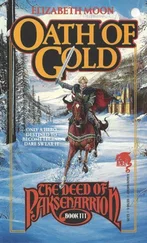Elizabeth Moon - Surrender None
Здесь есть возможность читать онлайн «Elizabeth Moon - Surrender None» весь текст электронной книги совершенно бесплатно (целиком полную версию без сокращений). В некоторых случаях можно слушать аудио, скачать через торрент в формате fb2 и присутствует краткое содержание. Жанр: Боевая фантастика, на английском языке. Описание произведения, (предисловие) а так же отзывы посетителей доступны на портале библиотеки ЛибКат.
- Название:Surrender None
- Автор:
- Жанр:
- Год:неизвестен
- ISBN:нет данных
- Рейтинг книги:3 / 5. Голосов: 1
-
Избранное:Добавить в избранное
- Отзывы:
-
Ваша оценка:
- 60
- 1
- 2
- 3
- 4
- 5
Surrender None: краткое содержание, описание и аннотация
Предлагаем к чтению аннотацию, описание, краткое содержание или предисловие (зависит от того, что написал сам автор книги «Surrender None»). Если вы не нашли необходимую информацию о книге — напишите в комментариях, мы постараемся отыскать её.
Surrender None — читать онлайн бесплатно полную книгу (весь текст) целиком
Ниже представлен текст книги, разбитый по страницам. Система сохранения места последней прочитанной страницы, позволяет с удобством читать онлайн бесплатно книгу «Surrender None», без необходимости каждый раз заново искать на чём Вы остановились. Поставьте закладку, и сможете в любой момент перейти на страницу, на которой закончили чтение.
Интервал:
Закладка:
“It’s true—they’re just seeing how long we can stand here, and expecting one of us to turn tail and run.”
“The scar doesn’t matter.” The words were out before he thought; she flushed and it showed whiter. “I’m sorry,” he said.
“No—I’m used to it. I thought you’d come anyway, and I thought you’d still—but I’m blushing because it’s my fault.”
“Fault?”
She looked away past his shoulder. “I had heard of you; I went there to meet you, and no one else. And meeting you, I wanted you—and then—”
“And then I wanted you. So?”
“So—I still want you, but—don’t bring it back to me, years from now.”
“No.” He moved closer to her, ignoring the women now carrying buckets past on their way to the well. “No, it was meant. The Lady meant it, maybe, or some other god.” He put his arm around her waist, and she leaned on him. He could have carried her off to the barton, then and there, but Arin came out looking pleased.
“So—we have work to do, Gird, to earn your fees.”
He knew he had turned red; he could feel the heat on his face. “Ah—yes. Mali—”
“Don’t tarry,” she said. Then she leaned against him again, and kissed him, and whispered in his ear. “We may have a Lady’s blessing already.”
Chapter Six
The only awkwardness came when he had to bring Mali before the count’s steward, to have her transferred on the Rolls. Luckily the count himself was not in residence, but the steward might have decided to invoke the rule himself.
“So—you’re marrying, young Gird?”
“Yes, lord steward.” Gird kept his eyes down.
“About time—you’ve loafed long enough.” The voice was chilly; Gird watched the fingers holding the pen tap on the edge of the parchment. “Look up at me, boy.”
The steward’s face was older, grayer, but otherwise unchanged. Gird met those ice-blue eyes with difficulty.
“You brought the marriage fee?” Gird handed it over, the heavy copper coins slipping out of his hands much faster than they’d come in. “And this is the girl—” The steward looked her up and down, and then glanced at Gird. “You chose strength, eh? A good worker, I’ll be bound—none too pretty—” Gird felt his ears burning; Mali’s face had gone mottled red. Her scar stood out, stark white, from brow to jawline. “Wide hips—good bearer. Any mageblood in your line, girl?”
“No, lord steward.” Her voice was husky, almost a growl.
“No, I daresay not. Nor would breed mages, is my guess. Waste of his lordship’s time, your sort, bar the fun of it.” The steward looked back down at the parchment. “Mali of Fireoak, daughter of Kekrin, son of Amis, wed to Gird of this village, son of Dorthan, son of Keris. Fee paid, permission granted to farm with Dorthan. That’s all then.”
They ducked their heads and went out quickly, both of them flushed and angry, but too wise to speak of it. First to Gird’s father’s house, for Mali to lay her first fire on the greathearth; every old grannie in the village was there to cry the portents of that flame. Gird held his breath. She put the splinters down in the Star pattern, and above them the tripod of fireoak, brought from her own family’s hearth, and then struck the flints. Once—would have been too soon. Twice—a fair omen, but not the best. On the third strike, a spark leapt from her tools to the tip of the fireoak splinters, and kindled living flame. Now she moved quickly, laying the rest of the fire in ritual patterns: this twig over that, this herb, a twist of wool from her father’s sheep, an apple-seed from their tree. The grannies muttered and flashed handsigns at each other; Gird was worried, but his mother smiled happily. It must be all right, then.
He and the other men left then, trudging through the back kitchen, then the cowbyre, into the narrow, cramped barton where the women had laid out the wedding feast on planks. This would be the refusing, he knew: Mali’s parents would come, and try to persuade her to go home. She would first refuse them, with the door open, then—when they argued longer—close and bar the door to them. After a ritual greeting to her mother-in-law, and a prick of the finger to get two drops of blood, one for the fire and one for the hearthstone, her parents would knock again. And now, as a member of this household, she would greet them as honored guests.
All this time, Gird endured the jokes of his friends and his brothers and father. He had heard such jokes all his life, finding them funny once he was old enough, but now, waiting for Mali to become his wife, and not her parents’ daughter, he was not amused. What did these grotesque fantasies have to do with Mali? He swiped irritably at his brother, when Arin tried to tie the traditional apron on him.
“You have to, Gird. You’re her husband now; don’t you want children?”
Gird looked at the apron, its ancient leather darkened by generations of celebrants. It was ridiculous. Bulls didn’t need such a thing; why did the gods demand it of humans? He could remember sniggering in the corner when Arin danced in the apron, and wondering how his brother could approach his wife in his own skin afterwards. His friends had come nearer, warily, ready to help Arin force him into it if necessary. He sighed, and let his arms fall.
“All right. But I still think—” He said no more; their hands were busy with thongs and lacings. “I wonder how old this custom is—”
Mali, when she came out, bit her lip to keep from laughing. At least, he hoped that was suppressed laughter on her face. He felt a fool enough, strutting around like a young bull first meeting heifers, and nearly as big. She wore the maiden’s vest of soft doeskin embroidered with flowers, laced tightly behind, where she could not reach it, a tradition as old as his apron. The men began to stamp the beat, their deep voices echoing off the barton walls as they chanted. Gird stamped as hard, feeling his face redden, hating it—but the old rhythm began to move him.
The steps were only partly traditional: part was each new-married man’s invention. The jiggling thing on the apron was ridiculous, yes—but it was not merely ridiculous. Gird strutted the length of the barton, whirled, skipped a step, backed—and closed on Mali. Her eyes were bright, twinkling with laughter; she glanced down, pretended shock, looked skyward and reeled backwards, to catch herself with a clutch at Gird’s shoulder. The watchers howled. She snatched her hand back, a maiden caught in indiscretion, and turned away. Gird circled her, faced her again, put his hands behind his back and waggled his hips. For an instant she grinned delightedly, then covered her face with her hands, brushed past him close enough for her skirts to catch on the apron, and then leaped like a startled deer.
Clearly, the dance was not embarrassing Mali—she played into the jokes as heartily as most men. Gird took heart, then. They could make their families laugh—their private joke, if their red faces came from exertion, and not from the shouts and laughter of others. They spun it out, circling and dodging between others and the tables, playing parts they only half understood. When they were both dripping sweat, Gird gave her a little nod, and his next rush carried them both into the cowbyre, where a stall had been laid with fresh straw for this occasion.
Here she had to unlace his apron, and he to unlace the maiden’s vest she wore, to replace it with the matron’s looser vest, his wedding present to her. Her fingers on his legs, his waist, brushed tantalizingly; the apron would be hardly more obvious than his response if she didn’t hurry. He fumbled with the vest lacings.
“Did they have to lace it so tightly?”
Читать дальшеИнтервал:
Закладка:
Похожие книги на «Surrender None»
Представляем Вашему вниманию похожие книги на «Surrender None» списком для выбора. Мы отобрали схожую по названию и смыслу литературу в надежде предоставить читателям больше вариантов отыскать новые, интересные, ещё непрочитанные произведения.
Обсуждение, отзывы о книге «Surrender None» и просто собственные мнения читателей. Оставьте ваши комментарии, напишите, что Вы думаете о произведении, его смысле или главных героях. Укажите что конкретно понравилось, а что нет, и почему Вы так считаете.












